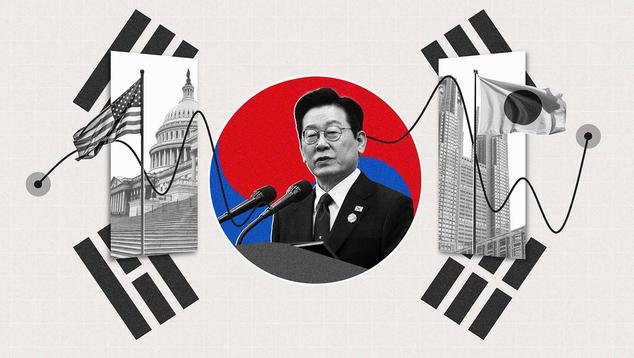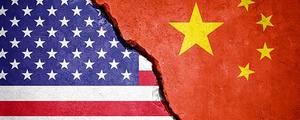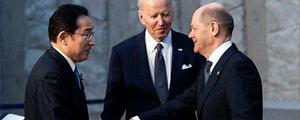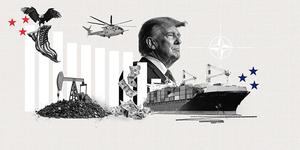LONDON — Months after former President Yoon Suk Yeol was removed from office for declaring martial law and plunging South Korea into a deep political crisis, the public’s confidence in domestic institutions is showing signs of recovery after recent declines.
On the foreign policy front, approval of U.S. leadership is on par with Japan’s for the first time in Gallup trends, reflecting declining approval ratings of the U.S. and improved ratings of Japan.
Confidence in Key Institutions at or Near Highest in Two Decades
In 2025, South Koreans’ levels of confidence in the military (70%), honesty of elections (60%), national government (43%) and judicial system (29%) have reached record highs or tied previous ones. This marks a notable shift from recent years, when South Koreans’ trust in national institutions declined during much of Yoon’s term, which began in 2022.
Political tensions between South Korea’s two main parties reached a breaking point in December when Yoon briefly imposed martial law, a move last seen in the 1980 military coup. Lawmakers impeached Yoon following an immediate backlash, a decision upheld in April by the Constitutional Court.
After a time of political uncertainty, a snap election in June — held a month before Gallup began surveying South Korea — brought Lee Jae Myung of the Democratic Party to power, shifting the presidency to the left and beginning a new period of stabilization.
South Koreans Highly Polarized on Electoral Honesty, National Government
While South Koreans’ trust in their national institutions has rebounded, polarization remains clear on some measures. Among those identifying with Yoon’s People Power Party, 28% are confident in the honesty of their elections, compared with 89% of Democratic Party supporters.
Confidence in the national government also shows a 50-percentage-point gap between adherents of the two parties, though faith in the military and judicial system is considerably less divided.
Leadership Approval Improves, but Perceived Corruption Stays High
Approval of South Korea’s national leadership has risen in 2025 to 41%, up from 25% the previous year — mirroring the rising confidence in the national government. Despite these improvements, both measures remain at the minority level, underscoring the challenge Lee faces in consolidating his political position.
Even with recent gains in institutional confidence and leadership approval, other long-standing issues persist. In 2025, more than two in three South Koreans (69%) say corruption is widespread throughout their government, roughly consistent with levels seen since 2022.
Perceptions of corruption in South Korea have typically been higher than the average among advanced economies. In most years since 2007, perceptions of government corruption have consistently been at least 10 points higher than the OECD median.
South Korean Approval of Tokyo on Par With Washington for First Time
South Korea’s domestic reorientation has been accompanied by a notable shift in how people view global and regional powers.
Approval of Japan’s leadership has climbed to a 10-year high of 34% in 2025, nearly triple the level recorded in 2020 (12%). Meanwhile, approval of U.S. leadership has fallen to 36%, the first time on record that South Koreans have rated Washington and Tokyo equally.
Such parity in approval of Washington and Tokyo is notable given the United States’ traditional role as South Korea’s security guarantor, as well as the country's long-standing historical disputes with Japan over its 1910-1945 occupation of the Korean Peninsula.
While South Koreans’ approval of Chinese leadership mirrored a similar drop in their approval of Japan from 2007 to 2021, recent approval of Beijing (13%) has remained unchanged, on par with the historical low.
Although tensions between South Korea and Japan remain, diplomatic ties between the two countries began to warm under Yoon. Lee has maintained this momentum, becoming the first South Korean leader to visit Tokyo before Washington after taking office.
The U.S. and South Korea recently reached a broad trade deal covering investment and shipbuilding, announcing the terms of the deal after President Donald Trump returned from a five-day diplomatic tour of Asia. This agreement followed a recent spike in tensions between the two countries after hundreds of South Koreans were detained in a U.S. immigration raid of a Hyundai plant in September, a month after Gallup fieldwork concluded.
Bottom Line
Confidence in South Korean institutions had been falling before Yoon’s imposition of martial law and subsequent impeachment plunged South Korea into a deep political crisis. Greater stability returned in June after the snap election of Lee. Since then, the country has seen improving confidence in national institutions and approval of its own leadership.
However, many challenges remain, including long-standing perceptions of corruption and highly polarized views of the democratic process.
Beyond entering a new phase in views of their domestic institutions, South Koreans’ international orientation appears to be shifting. The convergence of approval ratings for Japanese and U.S. leadership could lead to shifts in how South Koreans respond to overtures from these key partners, a change that may reshape diplomatic dynamics in the region.
Stay up to date with the latest insights by following @Gallup on X and on Instagram.
For complete methodology and specific survey dates, please review Gallup's Country Data Set details. Learn more about how the Gallup World Poll works.




